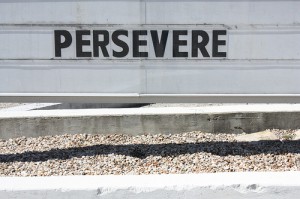Written by Dawn Rutan
Last Sunday’s sermon included Mark 11:25 (ESV), “And whenever you stand praying, forgive, if you have anything against anyone, so that your Father also who is in heaven may forgive you your trespasses,” along with the question, who do you need to forgive? I confess that my first thought was “myself.” As I thought about it further, I realized that my problem was not unforgiveness but wounded pride. Guilt and shame feel a lot alike. One difference is that shame is not necessarily tied to any actual sin. Many of the things that plague me are not sins but mistakes or errors in judgment—giving an answer that is based on incomplete knowledge of the facts; not anticipating the impatience of angry drivers on busy roads; or misjudging someone’s intentions. In my imaginary world, I would always have perfect knowledge and therefore would always do what is best and would please everyone all the time. Even as I write that, I realize that God’s perfect knowledge and perfect actions still don’t please everyone, and I am far from being God.
In the midst of my ponderings, I read the following in Lysa TerKeurst’s book Uninvited:
“Anything that infuses us with humility is good. Even if it feels a bit like humiliation in the moment, the workings of humility within are a gift. The tweaking of us by God in the quiet is the saving of us in public. The only difference between humility and humiliation is that one chose to bow low while the other tripped and fell there. Either way, the sweetest grace lifted my face, and I saw that on the other side of the stripping of pride are some of the best gifts God gives us.
“The Bible reminds us that on the other side of humility we find wisdom (Proverbs 11:2). We will be lifted up by God Himself in due time (1 Peter 5:6). ‘God opposes the proud but gives grace to the humble’ (James 4:6 NLT). Humility isn’t a place of weakness but rather a position that will come with honor (Proverbs 18:12). And humility is an absolute requirement for those who ask God to heal their land (2 Chronicles 7:14)” (pp. 108-110).
Humility is one of those things that is mentioned often in Scripture but rarely discussed in the church. It’s not really something we are interested in pursuing, perhaps because we think of it as the opposite of pride. Tim Keller, in his helpful little book on 1 Corinthians 3:21-4:7, The Freedom of Self-Forgetfulness, rightly criticizes the modern self-esteem theory.
“The person with the superiority complex is overinflated and in danger of being deflated; the person with an inferiority complex is deflated already… Deflated or in imminent danger of being deflated—it is all the same thing. And it makes the ego fragile… Trying to boost our self-esteem by trying to live up to our own standards or someone else’s is a trap. It is not an answer… [The] essence of gospel-humility is not thinking more of myself or thinking less of myself, it is thinking of myself less. Gospel-humility is not needing to think about myself.”
The answer according to the Apostle Paul is that God’s opinion is the only one that matters. “It is the Lord who judges me” (1 Cor. 4:4b). And as Keller puts it,
“Do you realize that it is only in the gospel of Jesus Christ that you get the verdict before the performance? … In Christianity, the moment we believe, God says, ‘This is my beloved son in whom I am well pleased.’ … ‘Therefore, there is now no condemnation for those who are in Christ Jesus.’ … You see, the verdict is in. And now I perform on the basis of the verdict. Because He loves me and He accepts me, I do not have to do things just to build up my resume. I do not have to do things to make me look good.”
I will be the first to admit that this is far easier said than done when the ego starts getting even slightly inflated. The Apostle John wrote, “For all that is in the world—the desires of the flesh and the desires of the eyes and pride of life—is not from the Father but is from the world. And the world is passing away along with its desires, but whoever does the will of God abides forever” (1 John 2:16-17). I’m striving to learn to welcome the little (or big) humiliations that remind me that I am weak but that I serve a strong God. It is indeed a gift of God to remember that He is in control and I’m not. And I need constant reminders that my identity is not determined by my competence at work, having all the right answers at the right times, pleasing everyone, or even my ability to resist some temptation. My identity is determined solely by my relationship with my Father in heaven, and His love for me is unchanging. Therefore I can say with Paul, “But with me it is a very small thing that I should be judged by you or by any human court. In fact, I do not even judge myself” (1 Cor. 4:3).
“Before destruction a man’s heart is haughty, but humility comes before honor” (Proverbs 18:12).
“But He gives more grace. Therefore it says, ‘God opposes the proud but gives grace to the humble… Humble yourselves before the Lord, and He will exalt you” (James 4:6,10; see also 1 Peter 5:5-6).
© 2017 Dawn Rutan. The views stated may or may not reflect the beliefs of the pastor or leadership of Dulin’s Grove Church.




